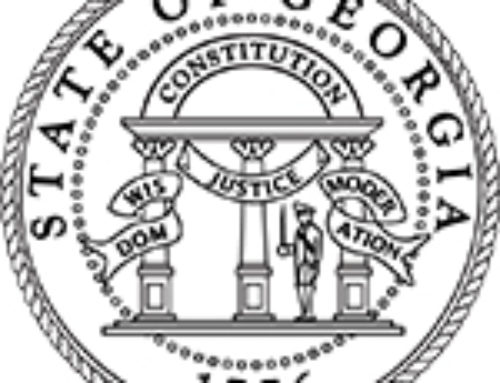Rule 29. Special Committee on Judicial Election Campaign Intervention
In every year in which a general election is held in this state and at such other times as the Investigative Panel may deem appropriate, the chairperson shall name three members to a Special Committee on Judicial Election Campaign Intervention (“Special Committee”), whose responsibility shall be to deal expeditiously with allegations of ethical misconduct in campaigns for judicial office. The committee shall consist of the senior judge, attorney, and citizen member of the Investigative Panel if available, and if not, the next most senior member from the respective membership category. The objective of the Special Committee shall be to alleviate unethical campaign practices in judicial elections, and to that end, the committee shall have the following authority.
Upon receipt of a complaint or other information facially indicating a violation by a judicial candidate of any provision of Canon 4 of the Georgia Code of Judicial Conduct during the course of a campaign for judicial office, the Director shall immediately forward a copy to the Special Committee members and the committee shall direct the Director to:
(1) Seek informally, from the complainant and/or the subject of the complaint, such further information on the allegations of the complaint as the committee may deem necessary.
(2) Conduct such additional preliminary investigation as the committee may deem necessary.
(3) Determine whether the allegations of the complaint warrant speedy intervention and further investigation and, if not, dismiss the complaint and so notify the complainant.
(4) If further investigation is deemed necessary, request confidential written responses from the subject of the complaint and the complainant on the following
schedule:
(a) within three business days of receiving such a request from the committee, a written response from the subject of the complaint;
(b) the committee will share the subject’s written response on a confidential basis with the complainant, who shall be requested to provide a written
response within three business days; and
(c) the committee will share the complainant’s response on a confidential basis with the subject of the complaint, who shall be requested to submit a written rebuttal within one business day.
In the event a complaint is filed within two weeks before a judicial election, or if circumstances otherwise dictate, the committee may accelerate this schedule or
eliminate steps (b) and (c) as the committee deems necessary and consistent with due process. Each of the above papers must be served on the committee only and shall be kept confidential except as described above. The identity of the complainant will remain confidential until the committee’s decision is communicated to the parties, unless that confidentiality is waived by the complainant. Any party breaching the confidentiality of this process shall be subject to a Public Statement as set forth in this Rule.
If the Special Committee determines after the papers from the parties are reviewed that the allegations do not warrant speedy intervention, the committee shall dismiss the complaint or refer it to the full Investigative Panel for such other action as may be appropriate under these Rules, and shall so notify the complainant and the subject of the complaint.
If it is determined that the allegations do warrant speedy intervention, the special Committee is authorized to:
(a) immediately release to the complainant and the subject of the complaint a non-confidential Public Statement setting out the violations reasonably believed to exist; and/or
(b) refer the matter to the full Investigative Panel for such other action as may be appropriate under these Rules.
To the extent practicable, the Special Committee shall seek to complete the process outlined in this Rule within 10 days of receiving a complaint.
Except as specifically authorized in this Rule and Rule 11.E, the proceedings of the Special Committee shall remain confidential. In no event shall the committee have the authority to file formal charges or otherwise dispose of the complaint against any candidate for judicial office, which authority is reserved to the full Investigative Panel under Rule 17.D.


